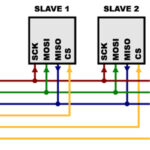 To keep in step with industry development and meet market demands, FORESEE, the technology-based brand of Longsys has officially launched the FORESEE pSLC microSD storage card recently. With highly reliable pSLC storage chips and capacity options ranging from 8GB, 16GB, 32GB, 64GB, to 128GB, it aims to provide industry customers with diversified mobile storage solutions.
To keep in step with industry development and meet market demands, FORESEE, the technology-based brand of Longsys has officially launched the FORESEE pSLC microSD storage card recently. With highly reliable pSLC storage chips and capacity options ranging from 8GB, 16GB, 32GB, 64GB, to 128GB, it aims to provide industry customers with diversified mobile storage solutions.
FORESEE pSLC microSD industrial storage cards are widely utilized in industrial monitoring systems, vehicle monitoring systems, industrial automation, energy mining, medical equipment, and other fields.
Compared to the SLC 1bit/cell that comes with only 2 voltage states, the TLC 3bit/cell boasts 8 voltage states. The fewer the voltage states, the greater the pressure difference between adjacent states. Therefore, the introduction of pSLC technology can facilitate high P/E cycles, fault tolerance, and stability.
Before departing from the factory, all Longsys microSD products undergo rigorous production testing including aging tests and high & low-temperature pressure tests to ensure the product is both stable and reliable.
Emergency power failure protection allows FORESEE pSLC microSD industrial storage cards to protect both the integrity of the original data as well as data blocks that have been programmed before any failure to avoid data disorder.
FORESEE pSLC microSD storage cards are characterized by ultra-high durability of 30,000 P/E and a life cycle of over 5 years. In addition, they are anti-static, anti-vibration, and moisture-proof. Actual measurements have verified that they can maintain a stable sequential read/write speed of above 60MB/s for extended periods without any evident drop in speed. Their 4K random read/write speed is also very stable and can remain above 5.66MB/s for extended periods.
With capacity options ranging from 8GB, 16GB, 32GB, 64GB, to 128GB, diversified capacity combinations can meet the storage requirements of different applications, such as vehicle monitoring systems and industrial automation.
The products meet the industrial temperature requirement of -40–85℃, enabling them to adapt to various extreme operating environments and be used in more industry applications.






Leave a Reply